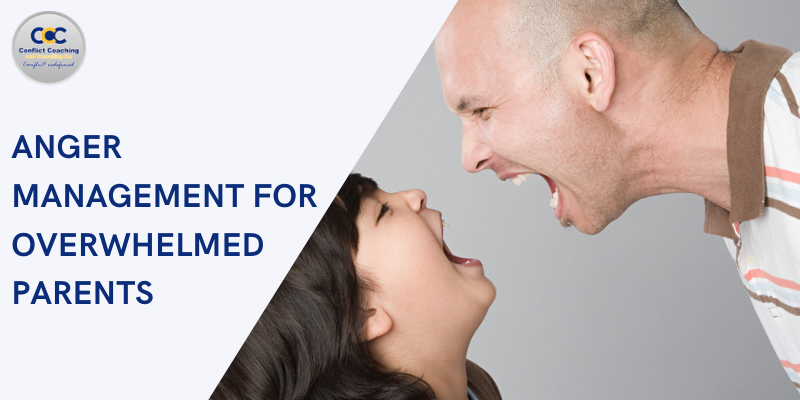
Postpartum Rage: Causes, Symptoms & Treatment
Bringing a baby into the world is a life-changing experience filled with joy, exhaustion, and overwhelming emotions.
While many new mothers expect to feel tired or emotional, some experience something far more intense—postpartum rage. This isn’t just regular frustration or stress; it’s sudden, overwhelming anger that can feel uncontrollable.
Postpartum rage can show up in different ways. Some mothers feel an intense urge to yell, throw things, or slam doors.
Others may not act on their anger but feel like they’re constantly simmering with frustration. These bursts of rage can come out of nowhere, often triggered by small things that wouldn’t normally cause such a strong reaction.
Anger itself isn’t bad—it’s a natural emotion. But when it becomes too intense or frequent, it can interfere with daily life and relationships.
Many women feel ashamed of their anger, wondering if something is wrong with them. The truth is that postpartum rage is often linked to postpartum depression (PPD) and anxiety.
Hormonal changes, sleep deprivation, and the overwhelming demands of motherhood can all contribute to these intense emotions.
If you or someone you love is struggling with postpartum rage, know that you’re not alone. Understanding the causes and finding ways to manage it can make a big difference. In this blog, we’ll explore the signs, causes, and ways to cope with postpartum rage.
What Is Postpartum Rage?
Postpartum rage is a sudden, intense anger that many new mothers experience after childbirth. It’s not just feeling irritated or frustrated—it’s an overwhelming, often uncontrollable anger that can escalate quickly.
Small things, like a crying baby, a messy house, or an offhand comment from a partner, can trigger an explosive reaction.
While anger is a normal human emotion, postpartum rage feels different because of its intensity, frequency, and difficulty in calming down once it starts.
Many women don’t expect to feel this level of anger after having a baby. Postpartum rage isn’t as commonly talked about as postpartum depression (PPD) or anxiety, but it’s often connected to both.
Hormonal changes, extreme exhaustion, and the emotional demands of caring for a newborn can make it hard to regulate emotions.
The pressure to be a “good mom” can also make things worse, as many women feel ashamed or guilty about their anger. They may bottle it up, only for it to explode later in ways they can’t control.
Key Characteristics of Postpartum Rage
Following are the main characteristics of postpartum rage:
- Quick Escalation of Emotions: Postpartum rage often comes on suddenly and intensely. A mother might feel fine one moment and then be overwhelmed with anger the next. It’s not just about being annoyed—it’s a rush of frustration or fury that seems to take over.
- Difficulty Calming Down After an Outburst: Once triggered, the anger doesn’t fade easily. A mother may continue feeling worked up long after the initial event has passed. This prolonged emotional intensity can be exhausting and make it harder to handle daily challenges.
- Guilt or Shame after Episodes of Rage: Many mothers feel deep guilt or shame after an outburst, especially if their anger was directed at their baby, partner, or family members. They may worry that they’re a bad mother or that something is wrong with them. This guilt can lead to more stress, creating a cycle of emotional exhaustion.
Postpartum rage is real, and it’s more common than people think. It’s often a sign that something deeper is going on, like postpartum depression, anxiety, or extreme stress.
Recognizing these feelings and understanding that they are not a personal failing is the first step toward finding relief.
Causes of Postpartum Rage
Postpartum rage doesn’t come out of nowhere—it’s usually caused by a combination of physical, emotional, and mental factors. Many new mothers feel overwhelmed, exhausted, and stretched thin as they adjust to life with a newborn.
The sudden shift in responsibilities, lack of sleep, and changes in relationships can create enormous stress. But postpartum rage isn’t just about external pressures.
Biological changes, particularly hormonal fluctuations, play a huge role in how emotions are processed after childbirth.
Understanding the causes of postpartum rage, which are somewhat similar to the causes of anger issues, is the first step toward managing it. One of the biggest contributors to these intense emotions is hormonal changes, which have a powerful impact on mood regulation.
1. Hormonal Changes
After giving birth, a woman’s body goes through a rapid hormonal shift that can affect mood, emotions, and overall well-being.
During pregnancy, estrogen and progesterone levels are extremely high, helping to regulate mood and create a sense of emotional stability.
But as soon as the baby is born, these hormone levels drop dramatically—sometimes within just 24 hours. This sudden change can leave a woman feeling emotionally unbalanced, making it harder to manage frustration and stress.
How Hormones Impact Postpartum Rage
- Drop in Estrogen and Progesterone: Estrogen and progesterone help regulate mood and stress responses. When these levels plummet after childbirth, emotional regulation becomes more difficult. This can make a mother feel more irritable, reactive, or overwhelmed by small triggers.
- Increased Cortisol (Stress Hormone): New motherhood is stressful, and the body responds by producing more cortisol, the hormone responsible for the “fight or flight” response. Higher cortisol levels can make a mother feel constantly on edge, making anger more likely to surface.
- Fluctuations in Oxytocin: Oxytocin, known as the “love hormone,” is released during breastfeeding and bonding moments with the baby. However, low oxytocin levels can sometimes contribute to feelings of irritability or disconnection, making emotional outbursts more likely.
- Thyroid Imbalances: Some women develop postpartum thyroid issues, such as hypothyroidism, which can cause mood swings, fatigue, and increased irritability. Because these symptoms overlap with postpartum depression and anxiety, thyroid levels should be checked if a mother is struggling with extreme mood changes.
Why These Hormonal Changes Matter
For many women, the combination of low estrogen, high cortisol, and exhaustion creates the perfect storm for postpartum rage. The body is trying to adjust to a new normal, but the drastic hormonal drop makes it harder to stay calm and rational.
2. Sleep Deprivation
Sleep is essential for emotional regulation, cognitive function, and overall well-being. However, for most new mothers, consistent sleep is nearly impossible.
Newborns wake frequently throughout the night for feeding, diaper changes, or simply for comfort.
Many mothers find themselves sleeping in short, interrupted bursts, which can lead to chronic exhaustion. This lack of rest significantly impacts mood and increases irritability, making postpartum rage more likely.
How Sleep Deprivation Contributes to Postpartum Rage
- Disrupts Emotional Control: Sleep deprivation affects the prefrontal cortex, the part of the brain responsible for rational thinking and decision-making. When this area is impaired, emotional responses become more intense and harder to control. Small frustrations that might not normally cause anger can feel unbearable.
- Increases Cortisol and Stress Levels: Poor sleep raises cortisol, the body’s primary stress hormone. When cortisol levels stay elevated, it puts the body in a constant state of tension. A mother who is already overwhelmed by the demands of a newborn will struggle even more to regulate her emotions when running on little sleep.
- Heightens Sensitivity to Triggers: Sleep deprivation lowers tolerance for everyday stressors. Crying babies, messy homes, or an unhelpful partner may feel much more irritating when the brain and body are exhausted. This makes anger harder to suppress and outbursts more likely.
- Impacts Physical Health: Ongoing sleep loss can lead to headaches, body aches, brain fog, and extreme fatigue. Physical discomfort can add to a mother’s frustration and make emotional control even harder.
Why Sleep Matters
Getting enough sleep is easier said than done for new mothers. However, small changes can help.
Asking for support from a partner or family member, taking naps when possible, and following a flexible sleep routine can reduce exhaustion and improve emotional regulation.
Recognizing the link between sleep deprivation and postpartum rage can also help mothers be more patient with themselves as they navigate this exhausting period.
3. Physical and Emotional Stress
Adjusting to motherhood is a massive transition. A new mother is not only recovering physically from pregnancy and childbirth but also adjusting to a completely new way of life.
The combination of physical healing, emotional challenges, and new responsibilities creates a high level of stress, which can contribute to postpartum rage.
How Physical and Emotional Stress Contribute to Postpartum Rage
Healing After Childbirth: Whether a mother has had a vaginal birth or a C-section, her body needs time to heal. Pain, discomfort, and hormonal shifts can make even small tasks feel overwhelming. When a mother is physically uncomfortable, her patience and ability to manage frustration decreases, making anger more likely.
Overwhelming New Responsibilities: A newborn requires constant care, leaving little time for a mother to focus on herself. Feeding, diaper changes, and soothing a crying baby can feel relentless, especially when paired with sleep deprivation. The constant demands can lead to burnout and emotional exhaustion, making anger harder to control.
Changes in Relationships: Many women feel frustrated when their partners, friends, or family don’t fully understand what they’re going through. If a mother feels unsupported, unappreciated, or burdened with most of the childcare, resentment can build, increasing feelings of anger and irritability.
Societal Pressure to be a “Perfect” Mother: Social media and cultural expectations often paint an unrealistic picture of motherhood. Many women feel pressure to “do it all”—breastfeed, keep a clean home, bond perfectly with their baby, and still be a loving partner. When reality doesn’t match these expectations, frustration and guilt can build, leading to increased emotional distress and anger.
Managing Physical and Emotional Stress: New mothers need support, rest, and realistic expectations. It’s important to ask for help, take breaks, and let go of perfectionism. Accepting that motherhood is challenging—and that it’s okay to struggle—can help reduce stress and prevent anger from escalating. Seeking therapy or joining a support group can also help mothers process their emotions in a healthier way.
Taking small steps to reduce stress and prioritize self-care can help lessen the intensity of postpartum rage.
1. Underlying Mental Health Conditions
Postpartum rage is often not an isolated issue—it’s frequently linked to underlying mental health conditions. While most people associate postpartum mental health struggles with sadness or anxiety, anger is another common but overlooked symptom.
Many new mothers experience intense frustration, irritability, or explosive anger, often without fully understanding why.
Three of the most common conditions connected to postpartum rage are Postpartum Depression (PPD), Postpartum Anxiety (PPA), and Postpartum Obsessive-Compulsive Disorder (OCD). Each of these conditions can heighten emotional distress and make anger outbursts more frequent and intense.
Postpartum Depression (PPD)
PPD affects about 1 in 7 new mothers and is characterized by persistent sadness, hopelessness, and emotional numbness. However, irritability and anger are also key symptoms that often go unnoticed.
How PPD Contributes to Postpartum Rage
- Feelings of Hopelessness: When a mother struggles with depression, daily challenges can feel overwhelming. Anger can be a reaction to feeling helpless or trapped.
- Lack of Emotional Regulation: PPD makes it harder to control emotional reactions, leading to sudden bursts of frustration or rage.
- Resentment Toward a Partner or Support System: If a mother feels unsupported or misunderstood, anger can build over time, leading to outbursts.
Many mothers with PPD feel guilty for their irritability or outbursts, which can create a cycle of shame and self-blame. Seeking professional support can help break this cycle and improve emotional stability.
Postpartum Anxiety (PPA)
Postpartum anxiety is marked by constant worry, racing thoughts, and physical tension. While anxiety is usually associated with fear or nervousness, it can also lead to anger and frustration.
How PPA Contributes to Postpartum Rage
- Constant Overwhelm: A mother with PPA may feel like she is always on edge, making small problems seem much bigger. This can result in quick emotional outbursts.
- Perfectionism and Control Issues: Many mothers with PPA feel the need to do everything perfectly. When things don’t go as planned, anger can take over.
- Physical Exhaustion from Worrying: Anxiety can cause insomnia, tension, and fatigue, all of which make emotional regulation harder.
Mothers with postpartum anxiety may lash out because they feel mentally exhausted from constant worry. Recognizing anxiety as the root cause of anger can help in seeking the right treatment.
Postpartum Obsessive-Compulsive Disorder (OCD)
Postpartum OCD is a lesser-known but highly distressing condition where mothers experience intrusive thoughts, compulsions, or fears related to their baby’s safety. This condition can fuel postpartum rage due to intense stress and anxiety.
How Postpartum OCD Contributes to Postpartum Rage
- Extreme Fear and Hypervigilance: A mother with postpartum OCD may feel like she must control everything to keep her baby safe. If something goes wrong, it can trigger intense frustration or outbursts.
- Guilt and Shame from Intrusive Thoughts: Many mothers with OCD experience unwanted, distressing thoughts. The shame surrounding these thoughts can lead to anger toward themselves or others.
- Compulsive Behaviors and Exhaustion: Constant checking, cleaning, or organizing can become overwhelming, leading to increased irritability.
Postpartum OCD often goes undiagnosed because many mothers are afraid to talk about their intrusive thoughts. However, treatments like therapy and medication can help reduce symptoms and emotional distress.
Postpartum rage is often a symptom of deeper emotional struggles, not just a personality flaw or bad temper.
If a new mother is experiencing persistent anger, frustration, or emotional instability, she may benefit from professional support.
Therapy, medication, and support groups can help manage PPD, PPA, and OCD, leading to improved emotional well-being and healthier relationships.
Signs and Symptoms of Postpartum Rage
Postpartum rage can appear in many forms, and its signs can be both emotional and physical. Below are some common signs and symptoms of postpartum rage, along with individual explanations for each:
- Uncontrollable Anger or Irritability over Small Triggers: This symptom is marked by sudden bursts of anger that arise from minor incidents. For example, a spilled drink, a crying baby, or even a misplaced item can trigger an overwhelming sense of frustration. Unlike everyday irritation, these reactions feel disproportionate and uncontrollable.
- Physical Symptoms like Clenched Fists, Tightened Jaw, or Raised Voice: When experiencing postpartum rage, the body often mirrors the emotional turmoil. Physical signs such as clenching fists, tightening of the jaw, or speaking in a raised voice are common. These reactions are the body’s way of preparing to confront a perceived threat or stressor.
- Frequent Guilt, Regret, or Shame after Episodes of Rage: After an episode of intense anger, many mothers experience deep feelings of guilt, regret, or shame. This emotional aftermath can be particularly distressing if the anger is directed at a loved one or if the mother feels she has lost control.
- Avoidance of Social Situations Due to Fear of Outbursts: A mother struggling with postpartum rage may begin to avoid social gatherings or public events. The fear of having an outburst in front of others can make everyday social interactions feel risky and stressful. This avoidance behavior can lead to isolation, which may further intensify feelings of loneliness and sadness.
Recognizing these signs is a crucial step toward seeking help and finding strategies to manage the intense emotions associated with postpartum rage.
Impact of Postpartum Rage
Postpartum rage doesn’t just affect a mother in the moment—it has lasting effects on her mental and emotional well-being, her relationships, and even her physical health.
The intense anger, guilt, and frustration that come with postpartum rage can create a cycle of emotional distress, making it harder for a mother to feel in control.
Left unaddressed, postpartum rage can lead to isolation, strained relationships, and even more severe mental health challenges.
Understanding its impact can help mothers and their loved ones recognize the urgency of seeking help and support.
Impact on the Mother
Postpartum rage can take a serious toll on a mother’s emotional, mental, and physical health. It can make her feel like she is constantly failing or losing control, leading to long-term consequences.
- Increased Feelings of Guilt and Shame: Many mothers feel intense guilt after an outburst, especially if it happens around their baby or loved ones. They may blame themselves for their anger, feeling unworthy or incapable of being a good mother.
- Emotional and Physical Exhaustion: Frequent episodes of rage can be draining, leaving a mother feeling mentally and physically exhausted. Constant tension can also lead to headaches, muscle pain, and trouble sleeping.
- Isolation and Withdrawal from Others: Mothers who struggle with postpartum rage may start to avoid social interactions, fearing they will lash out at others. This isolation can worsen feelings of loneliness and depression.
- Risk of Worsening Mental Health Conditions: If left untreated, postpartum rage can contribute to or worsen postpartum depression (PPD), postpartum anxiety (PPA), or even postpartum OCD. This can make recovery more difficult and impact daily functioning.
Impact on Relationships
Postpartum rage can put a strain on relationships with a partner, family members, and friends. It can also affect the bond between mother and baby.
- Strained Relationship with a Partner: Frequent outbursts can create tension in a relationship. A partner may feel confused, helpless, or even defensive, leading to arguments or emotional distance.
- Conflict with Family and Friends: Anger episodes can lead to misunderstandings with family members or friends. If loved ones don’t understand what’s happening, they might pull away, making the mother feel even more isolated.
- Difficulty bonding with the Baby: Postpartum rage can make it harder for a mother to feel connected with her baby. If she feels overwhelmed by emotions, she may struggle with patience, nurturing, or enjoying time with her child.
- Lack of Support from Loved Ones: If a mother’s anger is misunderstood, she may not receive the emotional support she needs. Loved ones may misinterpret her rage as aggression rather than a symptom of postpartum struggles.
Impact on Overall Well-Being
Beyond emotions and relationships, postpartum rage can also affect a mother’s long-term health and well-being.
- Increased Risk of Chronic Stress and Burnout: Constant emotional outbursts can put the body in a state of high stress, leading to burnout. This can make it harder to function, stay motivated, or find joy in daily life.
- Disruptions in Sleep and Appetite: The stress of postpartum rage can lead to sleep issues, either due to racing thoughts or tension. Some mothers may also experience changes in appetite, leading to weight loss or gain.
- Greater Risk of Developing Anxiety or Depression: If postpartum rage isn’t managed, it can lead to persistent anxiety or depression. The overwhelming emotions may make a mother feel hopeless or stuck in a cycle of frustration and regret.
- Impact on Parenting Confidence: Feeling out of control can lower a mother’s confidence in her parenting abilities. She may second-guess herself, struggle with decision-making, or fear that she is not doing enough for her child.
Recognizing the impact of postpartum rage is the first step toward getting help. Whether through therapy, support groups, or self-care strategies, finding ways to manage rage can improve a mother’s well-being, strengthen relationships, and create a more positive parenting experience.
Postpartum Rage Treatment
Managing postpartum rage requires a combination of emotional support, lifestyle adjustments, and, in some cases, professional intervention.
Since postpartum rage is often linked to postpartum depression (PPD) or anxiety (PPA), treatment typically focuses on addressing these underlying mental health conditions.
Every mother’s experience is unique, and what works for one may not work for another. However, recognizing the need for help and exploring available treatment options is an essential first step.
Professional treatment may include therapy, medication, or specialized postpartum classes. Additionally, support from loved ones, self-care strategies, and education about postpartum mental health can make a significant difference.
The goal is to help mothers regain emotional balance, improve their relationships, and feel more in control of their emotions.
Managing Postpartum Rage
While postpartum rage can feel overwhelming, there are practical steps mothers can take to manage their emotions and regain a sense of control.
Addressing the issue involves seeking support, making healthy lifestyle changes, and using coping techniques to reduce stress. Managing postpartum rage is not about suppressing emotions but rather finding healthier ways to process and express them.
1. Seeking Professional Help
If postpartum rage is interfering with daily life or causing distress, consulting a mental health professional is an important step. Since postpartum rage is often linked to depression or anxiety, a professional can assess whether additional treatment is needed.
- Therapy: Cognitive Behavioral Therapy (CBT) helps identify and change negative thought patterns, while interpersonal therapy focuses on improving relationships and emotional well-being.
- Postpartum Classes: Attending online anger management classes can provide helpful coping tools.
- Medication: In some cases, antidepressants or anti-anxiety medications may be recommended to help regulate mood. Any medication should be discussed with a doctor, especially for breastfeeding mothers.
Seeking help is not a sign of weakness—it’s a step toward recovery and a healthier postpartum experience.
2. Building a Support System
Having a strong support system can make a significant difference in managing postpartum rage. New mothers often feel isolated, but sharing feelings with trusted loved ones can help relieve emotional pressure.
Talk openly with a partner, family member, or close friend about emotions and challenges.
Join a postpartum support group or online community to connect with other mothers going through similar experiences.
Consider asking for help with childcare or household tasks to reduce stress and allow time for rest.
Feeling supported can ease frustration and provide reassurance that postpartum struggles are normal and temporary.
3. Lifestyle Adjustments
Daily habits can have a major impact on postpartum mental health. Simple changes can help regulate mood and reduce stress:
- Prioritize Sleep: Sleep deprivation worsens emotional instability. Taking turns with a partner for nighttime care or napping during the day can improve mood.
- Eat a Healthy Diet: Blood sugar imbalances can trigger irritability. Avoid excessive caffeine and focus on balanced meals.
- Exercise: Even gentle movement, like walking or yoga, can reduce stress hormones and boost mood.
Small changes can make a big difference in managing emotional ups and downs.
4. Coping Techniques
Developing healthy ways to respond to anger can prevent it from escalating. Some effective coping strategies include:
- Pause Before Reacting: When feeling triggered, take deep breaths, count to ten, or step away from the situation.
- Self-Care: Schedule time for hobbies, relaxation, or anything that brings joy.
- Journal Your Feelings: Writing down emotions can help identify patterns and triggers, making it easier to manage future episodes of rage.
Practicing these techniques regularly can help regulate emotions and prevent outbursts.
5. Preventing Postpartum Rage
While postpartum rage cannot always be avoided, certain steps can reduce the likelihood of experiencing severe anger episodes.
- Education during Pregnancy: Learning about postpartum mental health before giving birth can help set realistic expectations.
- Open Communication: Talking with a partner about emotional and physical needs can prevent misunderstandings.
- Plan for Support: Arranging help with childcare, housework, or meals in advance can reduce stress and prevent burnout.
Taking proactive steps before and after birth can create a more supportive and manageable postpartum experience.
6. When to Seek Immediate Help
While postpartum rage is distressing, it is usually manageable with the right support. However, some situations require immediate professional intervention:
- If anger escalates into thoughts of harming yourself, your baby, or others.
- If feelings of hopelessness or inability to enjoy life persist.
- If emotional distress is making it difficult to function daily.
In these cases, seeking urgent help from a doctor, therapist, or crisis support service is crucial. Postpartum rage is a real and serious condition, but it is treatable, and support is available.
FAQs
How do I know if I have postpartum rage?
You may have postpartum rage if you experience sudden, intense anger over small things, struggle to calm down after outbursts, or feel guilt and shame afterward.
Physical signs like clenched fists, a racing heart, or yelling may accompany these episodes. If your anger feels overwhelming or interferes with daily life, consider seeking professional support.
What is the 5-5-5 rule for postpartum?
The 5-5-5 rule suggests resting for 5 days in bed, 5 days on the bed, and 5 days around the bed after childbirth.
This approach encourages new mothers to prioritize recovery, limit physical exertion, and gradually ease into daily activities. It helps with healing and adjusting to postpartum changes.
How long are you considered postpartum?
The postpartum period officially lasts six weeks after childbirth, but recovery can take longer.
Many health experts consider postpartum to extend up to six months to a year, as hormonal, emotional, and physical changes continue.
Some women experience postpartum symptoms beyond a year, especially in cases of depression or anxiety.
Conclusion
Experiencing postpartum rage does not mean a mother is failing, it is a sign that she needs support.
The intense emotions, sudden outbursts, and lingering guilt can feel overwhelming, but they are not a reflection of her worth as a parent. Many mothers go through similar struggles, yet postpartum rage is rarely discussed openly.
Understanding that this is a real and valid postpartum experience can help reduce feelings of shame and isolation.
It is crucial to start open conversations about postpartum mental health. Too often, new mothers feel pressured to appear strong, patient, and in control at all times. This unrealistic expectation only adds to the stress.
Talking about postpartum rage without judgment can help mothers feel seen and understood, encouraging them to reach out for help without fear.





Responses